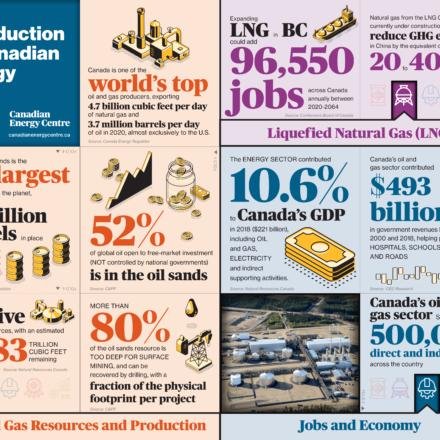FOI’s black holes
A secrecy case in Alberta is the latest example of a growing problem across Canada: the creation of agencies that spend public dollars but are legally immune from freedom-of-information requests.
Alberta’s Canadian Energy Centre (CEC) was launched in 2019 to defend the oil-and-gas industry from criticisms of environmentalists and others. Its current $12-million annual budget comes from a tax levied on the industry. The provincial government declined to designate it a “public body,” and under Alberta law that means citizens cannot file FOI requests.
Last May, then-CBC journalist Jennie Russell tried anyway. She filed an FOI request for more than a year’s worth of contracts and related records. The centre told her to go away, so she complained. Russell, no slouch in FOI fights, argued compellingly that the centre should be subject to the transparency law. It used public funds; was an offshoot of Alberta Energy; its only shareholder was the provincial government; and government ministers are board members.
Catherine Tulley, former information commissioner for Nova Scotia, was called in as an external adjudicator. Her March 15 report ruled against Russell. Tulley found that Alberta’s FOI law is similar to those in Prince Edward Island, Ontario and British Columbia: government must designate the agencies it creates as “public bodies” if FOI is to apply. Nova Scotia, Newfoundland and Labrador, and Manitoba use a different, more transparent approach. They established clear rules about what constitutes a public body rather than leave it to the discretion of government.
Tulley was an effective information commissioner in Nova Scotia, challenging the provincial government repeatedly over its many failures. But Alberta’s law left her no choice but to decide in favour of the CEC. The province argues that secrecy is needed to avoid giving strategic or tactical advantage to the “foreign-funded special interests” the centre is trying to counter. Notably, Tulley’s ruling suggested Alberta’s FOI law already provides that protection. “[T]he justification given for not designating the CEC may well have been addressed by existing exceptions to disclosure under the Act such as disclosure harmful to the economic and other interests of the public body and the exception related to advice from officials.”
The issue highlighted in Alberta has long been a sore point for transparency advocates, as governments create more outside agencies impervious to scrutiny through freedom-of-information. The problem has been cited by federal information commissioners for years. Last year, current commissioner Caroline Maynard recommended that “agencies to whom the government has outsourced the delivery of programs, that provide government services or that carry out activities of a governmental nature, should be subject to … the [Access to Information] Act.” Federally, lots of agencies performing public services are not covered by the Act, including Nav Canada and Canadian Blood Services.
Citizens should be alarmed about this trend because agencies exempt from sunshine laws can waste public money in self-serving ways. British Columbia Ferry Services Inc. for years was exempt from freedom-of-information, and was allowed to set its own executive compensation levels. A 2009 investigation by the comptroller general found salaries and bonuses at the agency were far too generous. The “Chief Executive Officer’s (CEO) total 2008/09 compensation was more than double that of the larger public sector comparators. … The BCFS Board Directors’ remuneration was also higher than public sector organizations we compared against, and the retainer fee portion, which was most of the remuneration, was three to five times higher than permitted …” Among other things, the report recommended bringing the agency under freedom-of-information to help prevent abuses. The government agreed. You can now file an FOI request to BC Ferries. (Thanks to FOI advocate Vincent Gogolek for pointing me to this example.)
Clever governments have found devious ways to subvert freedom-of-information laws, and the ‘external agency’ stratagem is a perennial favourite. But it not only undermines transparency, it can also lead to waste of precious public dollars. Did the Canadian Energy Centre sign suspicious, dubious or extravagant contracts? We might never know.
March 24, 2022

